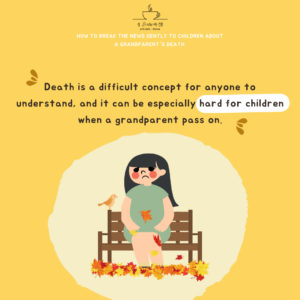
Death is a difficult concept for anyone to understand, but it can be especially hard for children when a grandparent dies.
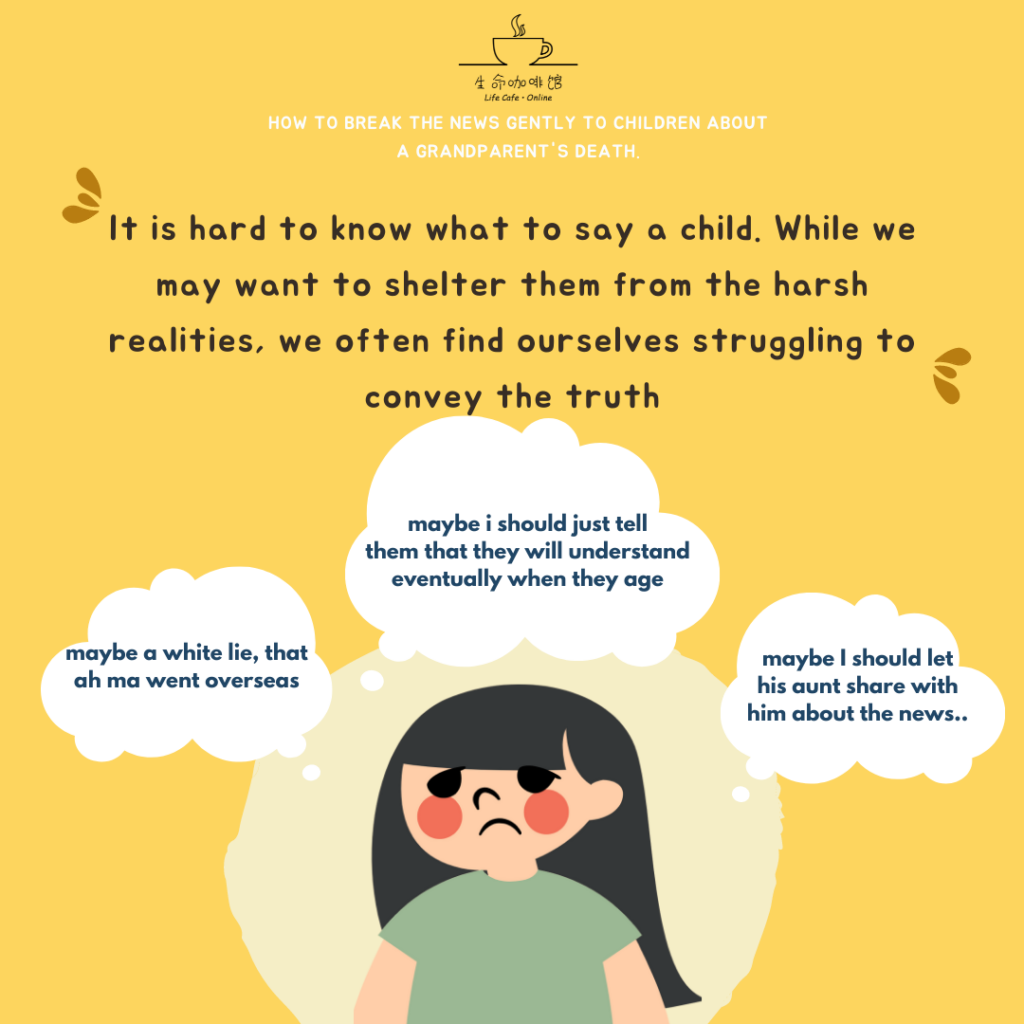
How to break the news:
Explaining death to a child can be difficult, but it is necessary. There are a few things to keep in mind when breaking the news to a child about a grandparent’s death. When someone close to us dies, it is hard to know what to say to a child. While you may want to shelter them from the harsh realities of life, it is important, to be honest, and frank with them when explaining a loved one’s death.
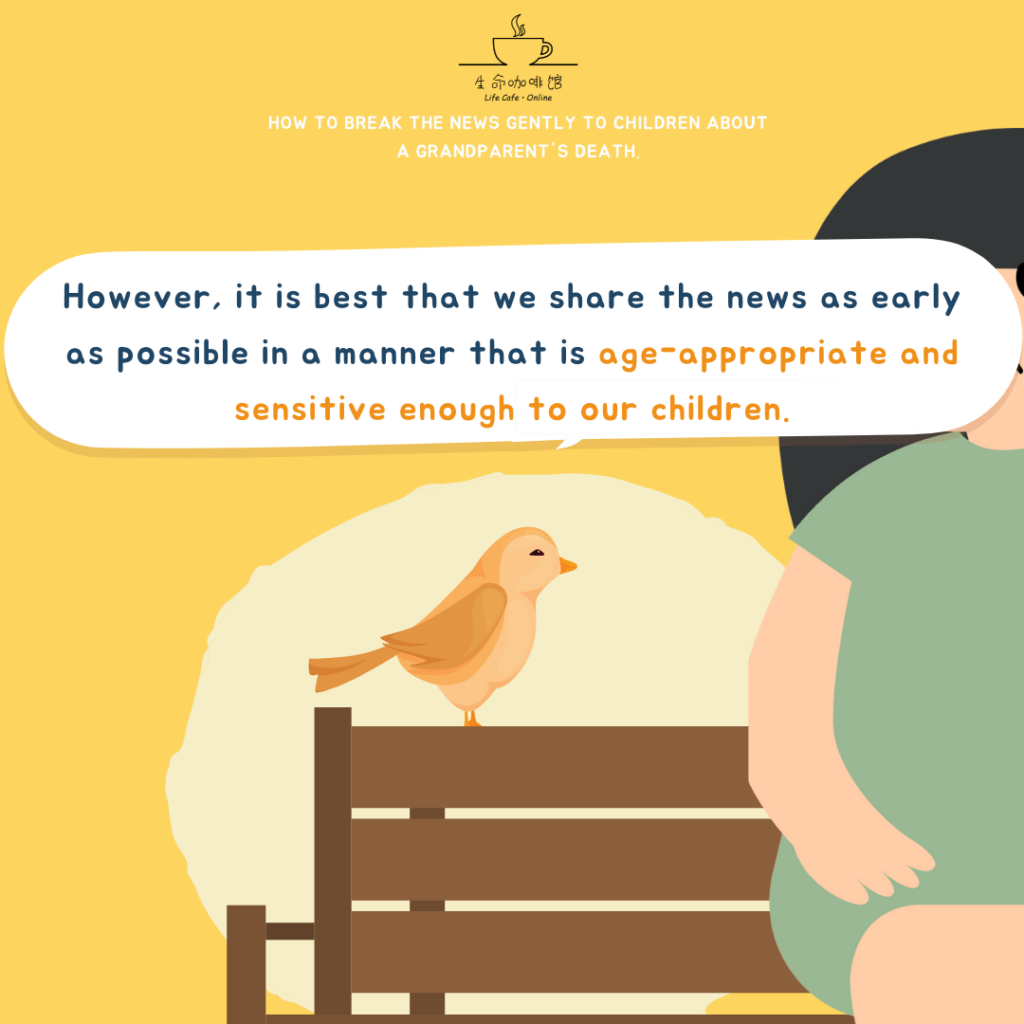
For example:
For example, one way to break the news gently to children about a grandparent’s death is to tell them that our grandparents are in a better place and that they will no longer have to suffer from illnesses or age-related problems. It’s a time of sadness and reflection, but it is also a time to celebrate the lives of those who have passed on.
The other way to explain the concept of death gently to children about a grandparent’s death is to explain it with an analogy. For example, “It’s like when a tree in the forest dies. The leaves fall off and the branches get weak. The tree is still there, but it’s not the same as it was before.” It is important to talk about that it would never be the same because the permanence of death is something that young children have the hardest time understanding.
We may also bridge the topic by saying that explaining that people may have passed on but they are never dead to us until we have forgotten about them. For example, “People’s lives continue on after they die, in our memories. We think about them and talk about them, and we keep their memories alive. Just like when we see a picture of someone we used to know, it reminds us of that person and we can feel like they’re still with us.”
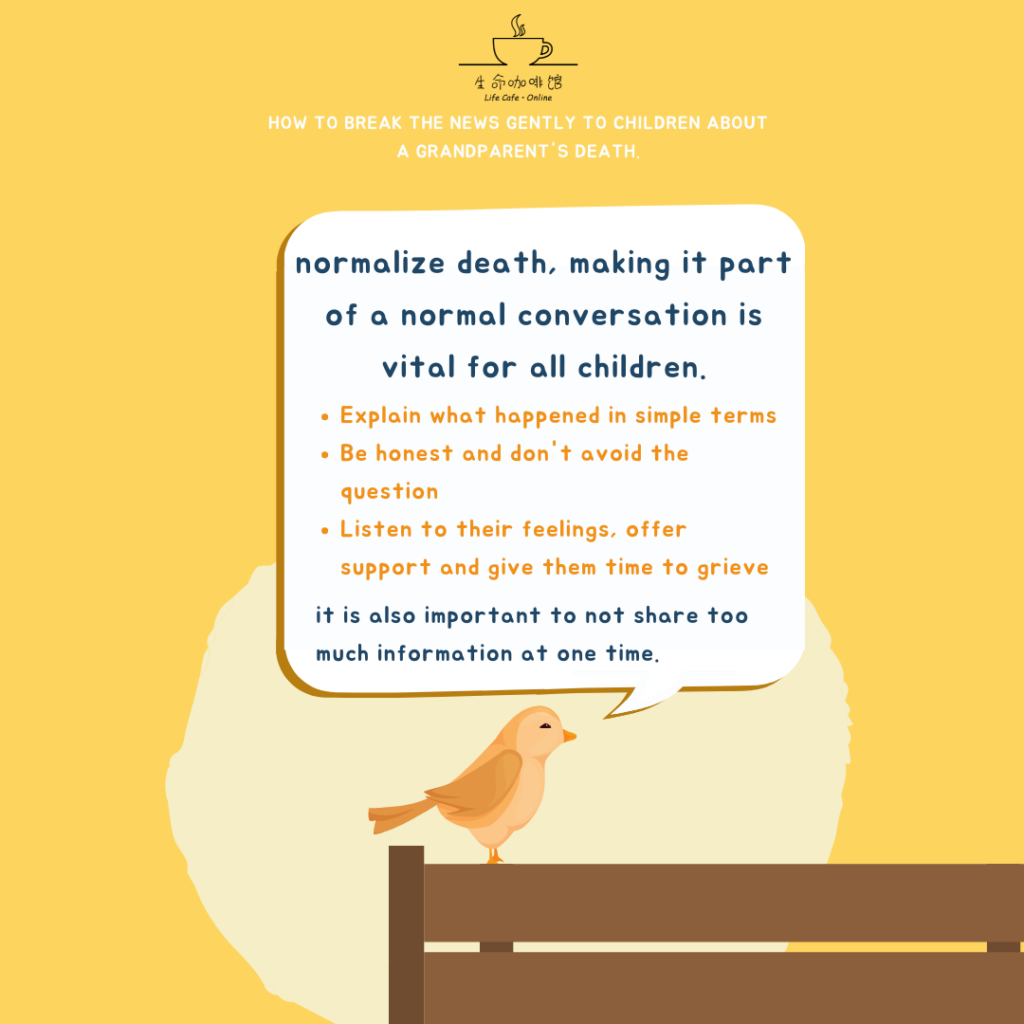
How Much to Say:
It is important not to overwhelm a child with too much information. while some parents choose to avoid the topic altogether, while others may discuss it in great detail. the greater approach may be best somewhere in between. It is important to remember that different children will process death in different ways hence it is best to not overwhelm them with too much information but also not have the feeling that they are not allowed to talk about the person who died. Give your child small bits of info to determine just how much he or she can understand. You will then know what questions to ask in return.
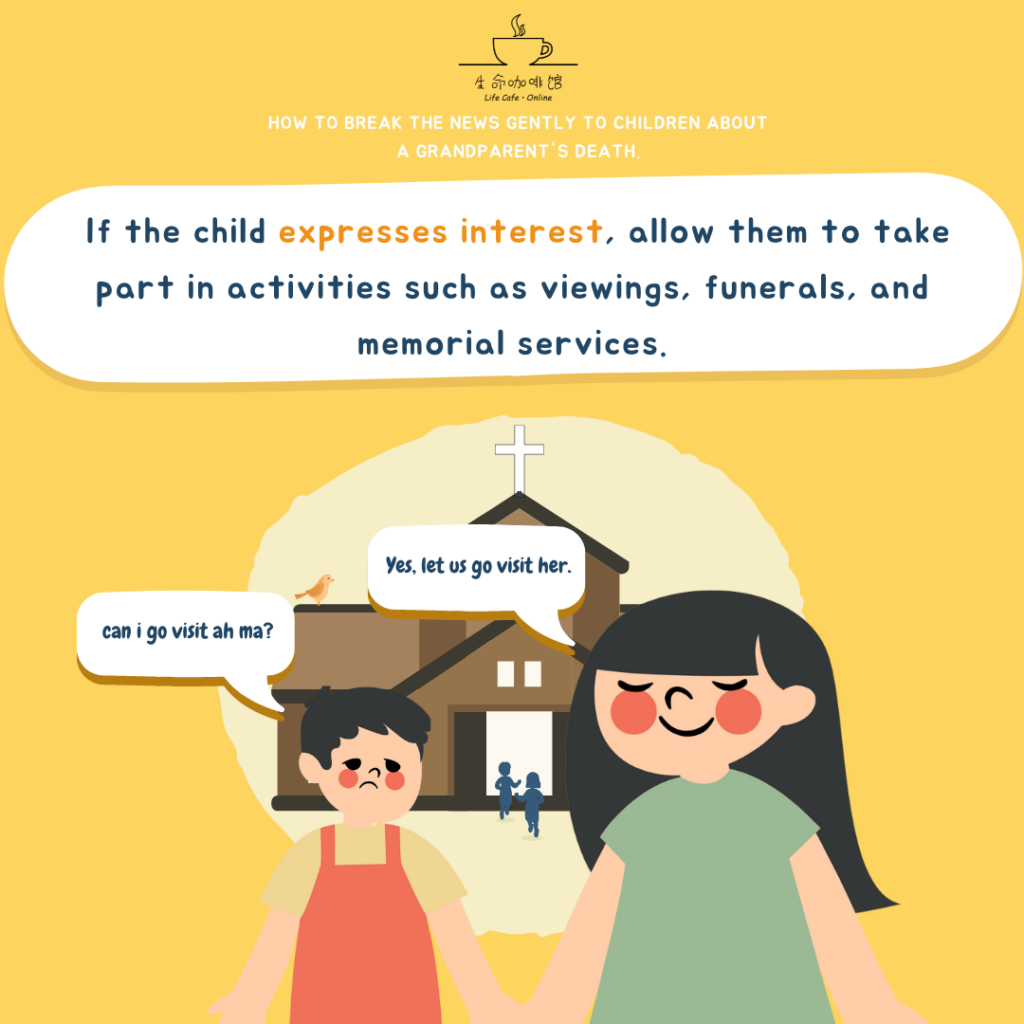
Describe the events and changes that will occur.
Allow them to take part in activities such as viewings, funerals, and memorial services. Describe to them what activities will take place in advance. For young children, think about the details in your descriptions of the surroundings. For example, describe the casket and clothes and that the body will be posted. Or if it is a memorial, explain that the area is reserved and describe where the remains are, if they have been cremated, in an enclosed casket. For instance, “Many people who were fond of Grandpa will be present. We’ll sing, pray, and discuss Grandpa’s life stories. People may cry and hug one another. ‘I’m sorry for your loss,’ they may say. ‘Thank you,’ we can respond, or ‘Thank you for coming.’”
Discuss how it would feel to miss your loved one’s birthdays, anniversaries, holidays, and special occasions, and to involve your child in the planning of the next calendar event. It could be grandpa’s birthday or a death anniversary. Help your child remember fond memories of the time spent together with the deceased by leaving photo albums or family albums in the house.
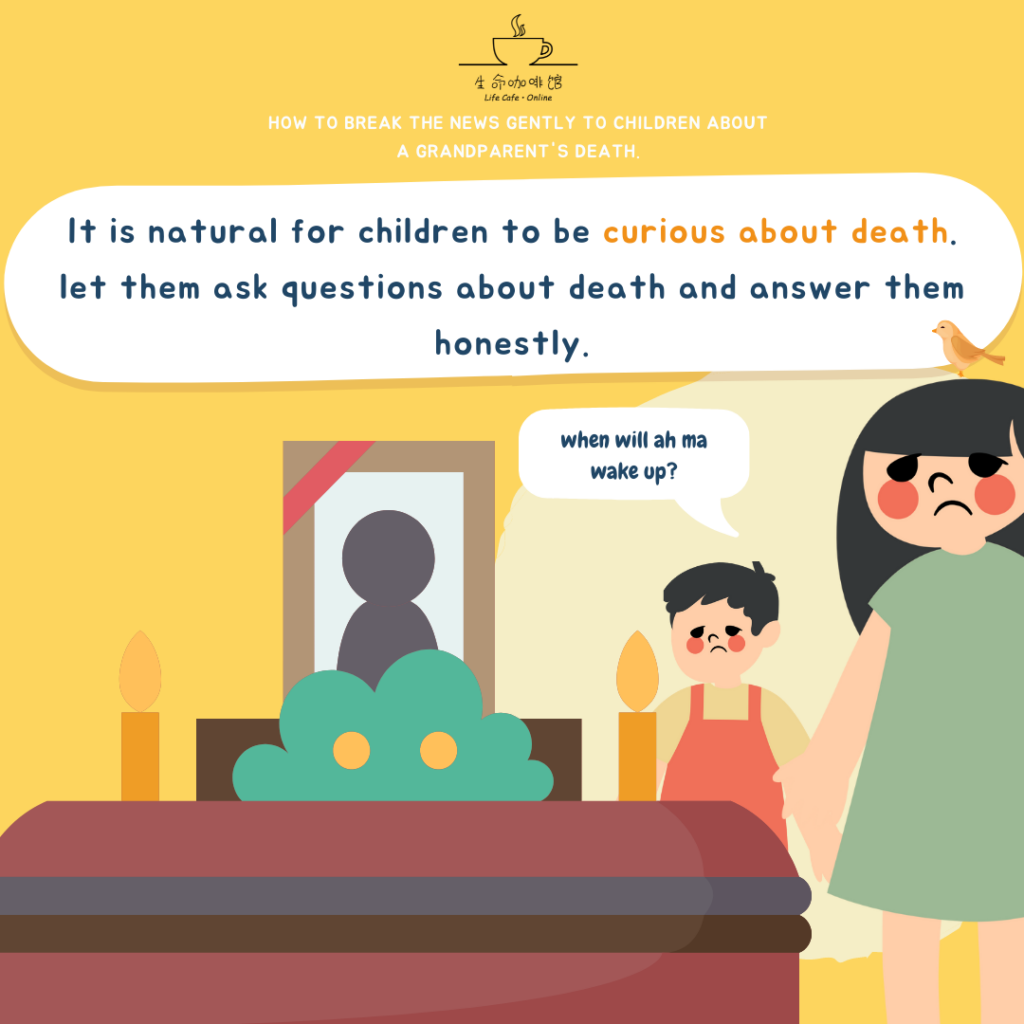
Let Them Ask Questions:
It is natural for children to be curious about death. As adults, we often shy away from death, but children are more open and innocent. We should let them ask questions about death and answer them honestly. We should also not shy away from discussing death with our children. By doing so, we can too moderate our responses and gauge if we have given too much information by understanding the child’s thoughts and feelings throughout the conversation.
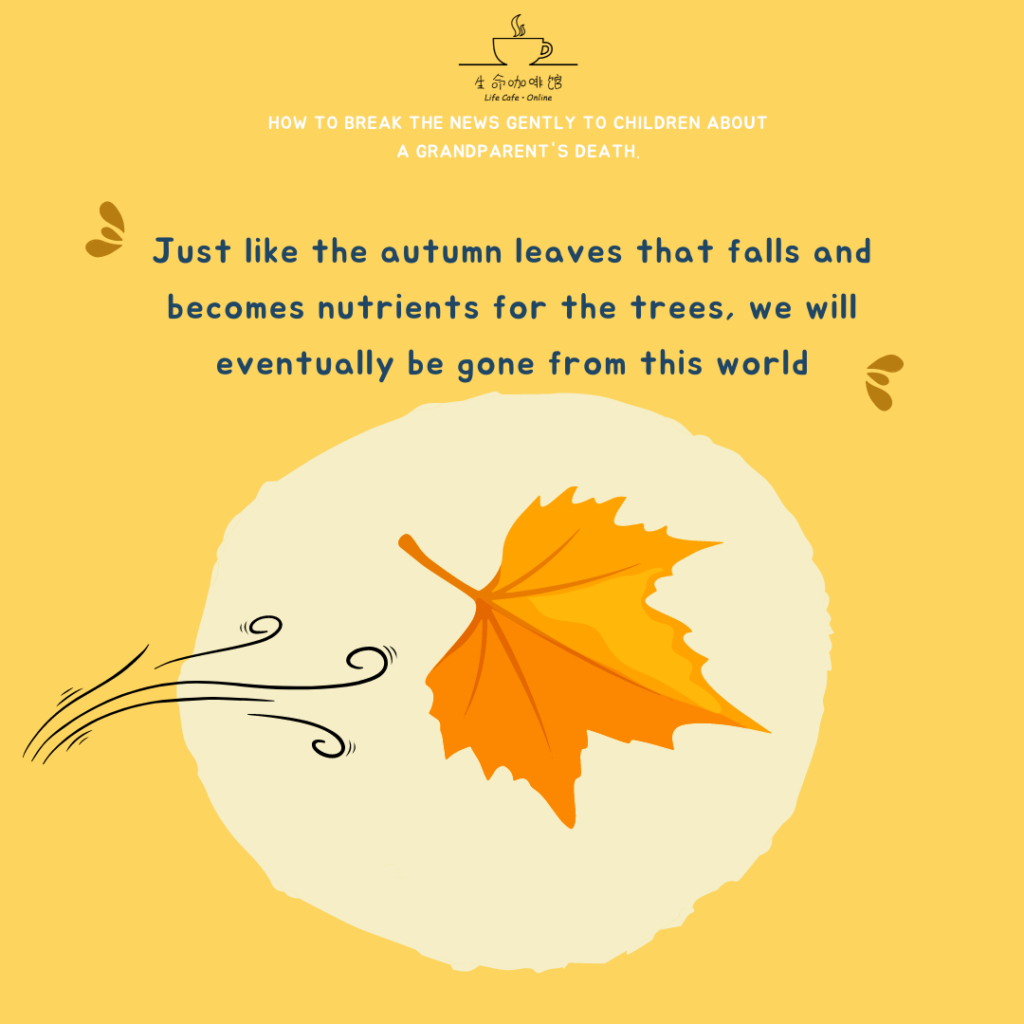
Prepare Now:
Making death a part of normal conversations is vital for children of all ages; young ones especially benefit because the concept of life being over is confusing, and they usually don’t have the vocabulary to fully express how they feel.
People who are comfortable with the topic of death should consider bringing it up more often to avoid surprising their kids when relatives or other fatalities crop up in real life or in entertainment. For example, we can raise the subject during ancestors visiting, and if death happens in a movie, or when a pet dies to better poach the subject to our children’s. Alternatively, we may also rely on children’s illustration books to bridge the topic of death to them from their level of perspective.

Life education is the best gift for children:
Life education is the best gift for children – 《阿妈去了哪儿》 Illustration Book is a local rendition planned by UFM100.3 Huang Wen Hong and Zhang Chong Yao, a piece of art in breaching the topic of death delicately to our children, the illustrations are beautifully drawn by local artist, Guo Hong Xun and stories beautifully curated by Dr. Grace Li Haining. the book provides a comforting perspective for children to learn about the death of a loved one; particularly grandparents.
《阿妈去了哪儿》 Illustration Book is now available in hardcopy and digital copy. and will be redeemable with a donation of $15 (Physical Copy) and $10 (Digital Copy).
100% of the proceeds from the book sales will be donated to Lighthouse School, a social service program supported by Community Chest.
Click here to listen to the read version of 《阿妈去了哪儿》
Click here to get a copy of the illustration book of 《阿妈去了哪儿》
Click here to watch the book launch of 《阿妈去了哪儿》
